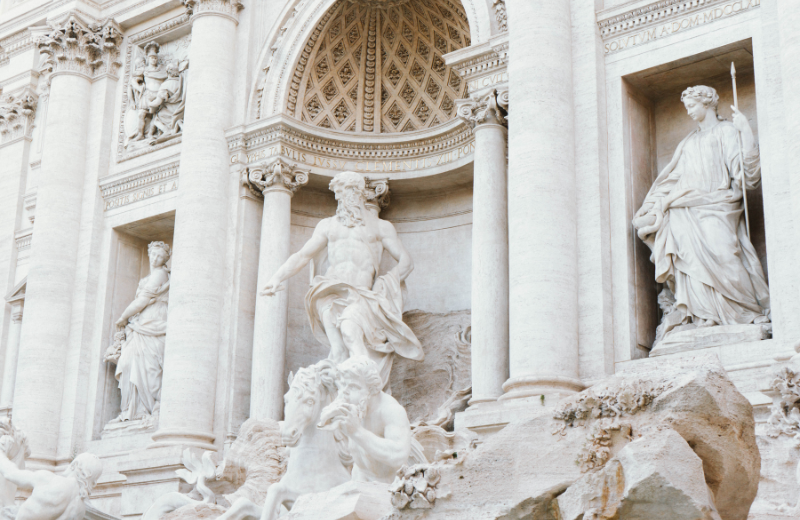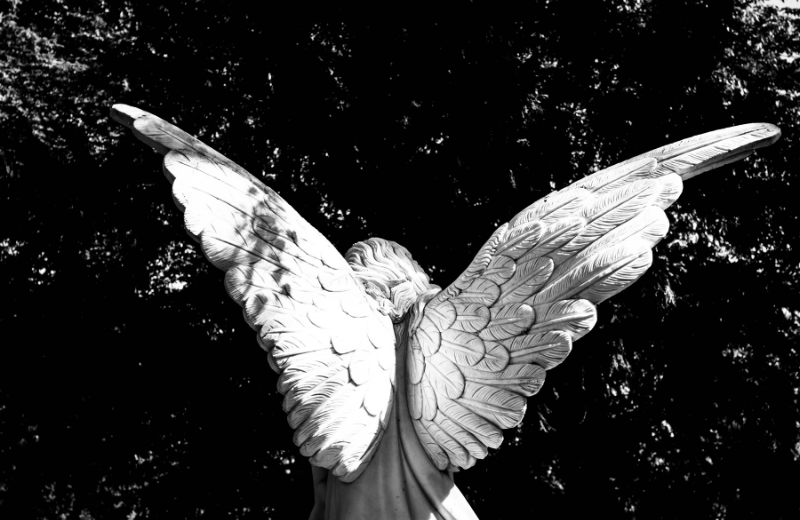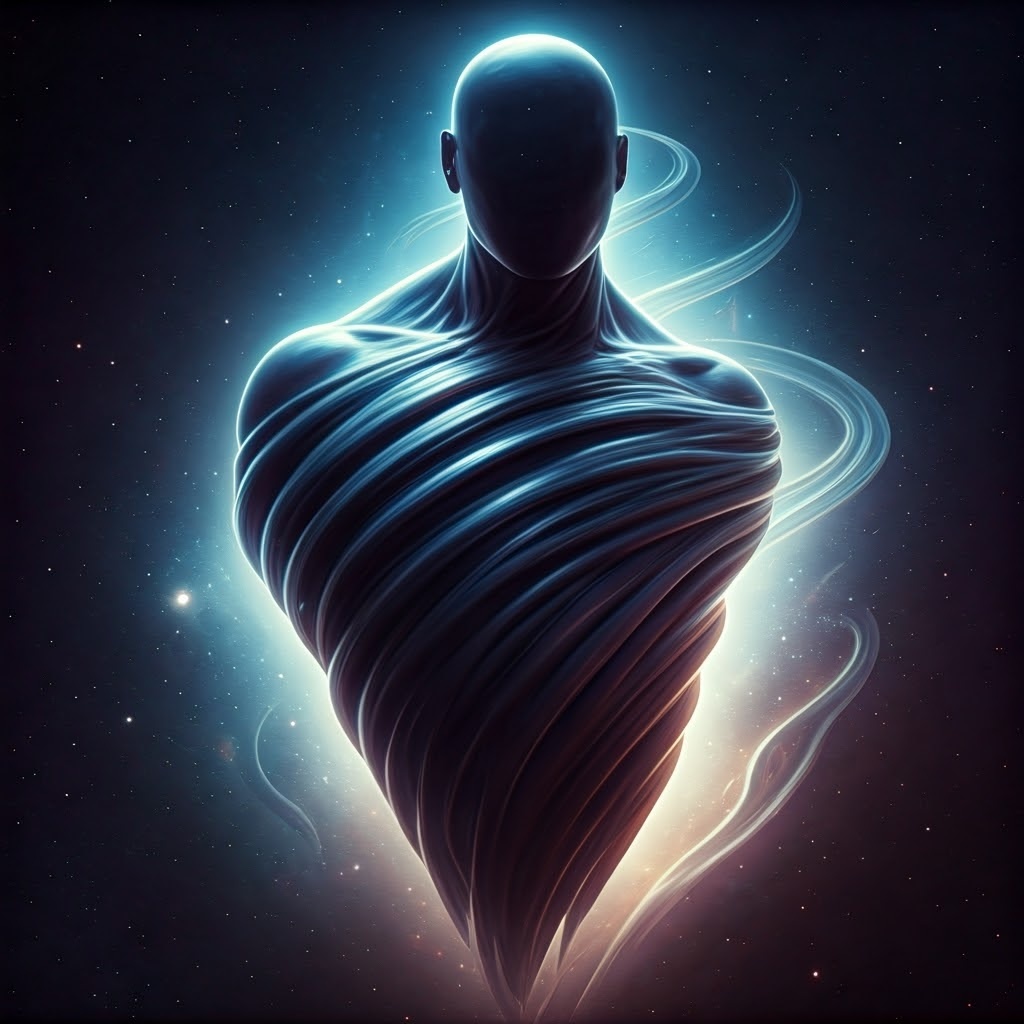Dreams have fascinated people for thousands of years. Are they messages from the gods? Do they reveal hidden truths? In Greek mythology, one powerful figure was responsible for shaping dreams—Morpheus, the Greek god of dreams. If you’ve ever wondered about the origins of dreaming in Greek mythology, Morpheus’ powers, or the myths that surround him, you’re in the right place.
Let’s explore who Morpheus the dream god really was, what he represented, and why he continues to inspire modern media.
Jump to:
- Who Was Morpheus?
- Morpheus' Myths
- The Role of Morpheus in Greek Storytelling
- What Powers Did Morpheus Possess?
- Symbols Associated with Morpheus
- Morpheus' Family and Relationships
- Why Is Morpheus Special?
- The Temple of Morpheus and Ancient Worship
- Morpheus in Modern Culture
- Frequently Asked Questions About Morpheus
- Study Greek Mythology for £29
Recommended for you!
Best SellersWho Was Morpheus?
Morpheus was the Greek god of dreams, responsible for shaping and delivering them to mortals. His name comes from the Greek word morphē, meaning "form" or "shape," which reflects his ability to take on any human form within dreams. Unlike ordinary dreams that might be vague or confusing, the ones Morpheus crafted were vivid and realistic.
He was one of the Oneiroi, a group of deities associated with dreams. While his brothers Phobetor and Phantasos controlled nightmares and illusions, Morpheus had the unique ability to create dreams that felt real, carrying messages from the gods or reflecting deep desires and fears.
Morpheus' Myths

Morpheus is not as widely mentioned in Greek mythology as some of the Olympian gods, but he does appear in classical literature, most notably in Ovid’s Metamorphoses. In this Roman interpretation of Greek myths, Morpheus is described as a winged god who could swiftly enter dreams and manipulate them. Unlike other dream-related deities, he was not responsible for creating illusions or nightmares; instead, he crafted dreams that carried meaning, often acting as a messenger between gods and mortals.
Morpheus and the Myth of Ceyx and Alcyone
One of the most famous myths associated with Morpheus involves King Ceyx and Queen Alcyone, a tragic love story that highlights his role as a dream-bringer and truth-teller.
Ceyx, a noble king, set sail on a journey but was tragically lost at sea during a fierce storm.
Unaware of his fate, his devoted wife Alcyone prayed to the gods for his safe return. Rather than leaving her in uncertainty, the gods sent Morpheus to deliver the painful truth. Taking on the form of Ceyx, Morpheus entered Alcyone’s dream, gently revealing that her husband had perished. He did not seek to frighten her but to help her accept reality with grace.
This myth demonstrates Morpheus’ role beyond simply shaping dreams—he was also a god of revelation, ensuring that mortals received messages they needed to hear, even when the truth was difficult.
Morpheus as a Messenger of the Gods
Morpheus was not just a dream-weaver; he often acted as a bridge between gods and humans. The Olympians relied on him to deliver visions, warnings, and omens through sleep. Unlike spoken prophecies, which could be misunderstood, dreams crafted by Morpheus felt real, making them more impactful.
The Role of Morpheus in Greek Storytelling
Dreams played a significant role in ancient Greek culture. They were believed to be divine messages, warnings, and even glimpses into the future. Morpheus was a bridge between the mortal world and the divine. He often acted as a messenger, helping gods communicate with humans through visions.
Unlike many other Greek gods, Morpheus did not interfere directly in human affairs. Instead, he influenced people’s decisions and emotions through dreams. This made him a powerful yet subtle presence in mythology, shaping events without direct intervention.
What Powers Did Morpheus Possess?
Morpheus had extraordinary abilities that made him one of the most fascinating figures in Greek mythology.
- Shapeshifting – He could take on the form of anyone, appearing as a friend, a loved one, or a complete stranger in a dream. This allowed him to deliver messages in a way that felt personal and real.
- Control Over Dreams – Unlike his brothers, who focused on illusions or nightmares, Morpheus specialised in creating realistic dreams that carried meaning and guidance.
- Flight – Often depicted with wings, Morpheus could move between the dream world and the waking world at incredible speed.
- Communication with the Gods – He acted as an intermediary, ensuring that divine messages reached humans through their dreams.
Symbols Associated with Morpheus

Morpheus is often represented with a few key symbols that highlight his connection to dreams and the night:
- Wings – Depicted as either feathered or bat-like, his wings symbolised his ability to travel quickly between worlds.
- Poppy Flowers – The poppy plant, associated with sleep and dreams, was a key symbol of Morpheus. This connection is also why the word "morphine," a pain-relieving drug that induces sleep, is derived from his name.
- A Reclining Figure – In ancient art, Morpheus is sometimes shown as a relaxed figure, symbolising the peaceful state of dreaming.
Morpheus' Family and Relationships
While Morpheus is often discussed in isolation, he was part of a larger mythological family. He was one of the Oneiroi, a group of dream deities, and the son of Nyx (the primordial goddess of the night). In some versions of mythology, his father is Hypnos (the god of sleep), making Morpheus deeply connected to the forces that govern rest and dreams.
Although Morpheus is not commonly linked to a wife or consort, some myths suggest a connection to Pasithea, the goddess of relaxation, meditation, and hallucinatory visions. As the wife of Hypnos in some versions of mythology, Pasithea was associated with states of unconsciousness, making her a fitting partner in stories where she is linked to Morpheus.
Unlike many Greek gods, Morpheus does not have well-known children in mythology. However, in modern retellings, he is sometimes depicted as having dream-related offspring or followers.
Why Is Morpheus Special?
Among the Greek gods of dreams, Morpheus stands out because of his unique connection to both gods and mortals. Unlike deities who ruled over the sky, sea, or underworld, Morpheus’ domain was intangible—existing only in the mind. His influence was powerful, shaping thoughts, emotions, and even destinies through dreams.
Morpheus was neither entirely good nor evil. His role was to reveal the truth, whether that truth was comforting or painful. This neutrality makes him a fascinating and mysterious figure in mythology.
The Temple of Morpheus and Ancient Worship
Although Morpheus was not one of the twelve Olympian gods, his influence was significant in ancient Greek culture. There is no direct evidence of a major temple dedicated solely to him, but he was often honoured in sanctuaries related to Hypnos and Nyx.
The ancient Greeks frequently visited oracles and temples of sleep, such as those dedicated to Asclepius, the god of healing, where they believed divine dreams could provide guidance or even cures for illnesses. Morpheus, as the god of dreams, would have played an important role in these experiences.
Dream incubation—where people slept in sacred spaces to receive visions from the gods—was a common practice in temples, and Morpheus' presence was likely invoked in these rituals.
Morpheus in Modern Culture

The concept of Morpheus has survived long past ancient Greece, appearing in literature, psychology, and pop culture. The name Morpheus has been used in science, books, films, and video games to represent figures connected to sleep, dreams, or alternate realities.
His influence can be seen in everything from psychological discussions about the unconscious mind to fictional characters who embody wisdom, transformation, and hidden knowledge.
Morpheus in Modern Science and Psychology
- The word morphine, a pain-relieving drug that induces drowsiness, is named after Morpheus, reflecting his connection to sleep and altered states of consciousness.
- The term "morphic" (relating to shape or form) stems from the same root word as Morpheus' name, highlighting his role in shaping dreams.
- Carl Jung, a famous psychologist, explored the symbolism of dreams, and many of his theories align with the way Morpheus delivered divine messages through visions.
Dream analysis continues to be an important aspect of psychology, with modern researchers studying how dreams influence emotions, decision-making, and memory—just as the ancient Greeks believed Morpheus could reveal deeper truths through dreams.
Morpheus in Literature
Throughout history, Morpheus has inspired writers exploring the nature of dreams and reality. In 17th-century poetry, he often appeared as a figure delivering prophetic or symbolic visions. Writers such as John Keats and Edgar Allan Poe referenced Morpheus in their works, associating him with the mystery and power of sleep. Even today, modern fantasy and science fiction authors use his name and mythology to craft dreamlike narratives that blur the lines between illusion and truth.
Morpheus in Film and Television
The most famous modern reference to Morpheus is in The Matrix, where Morpheus is the wise mentor who guides Neo into the real world. Just as the mythological Morpheus shaped dreams to reveal hidden truths, this character presents Neo with a choice between two realities—one an illusion, the other the truth. His role in the film reflects the Greek god’s function as a figure of revelation and transformation.
Other films and TV shows also play with Morpheus' themes. In The Sandman, based on Neil Gaiman’s graphic novels, Morpheus is a powerful, brooding god-like figure ruling over dreams. This version draws heavily from ancient myths, presenting him as an enigmatic being who governs both imagination and fate.
Morpheus in Gaming and Popular Media
The influence of Morpheus extends into video games and other forms of entertainment. Many fantasy and role-playing games feature characters named after him, often with powers related to dreams, illusion, or shape-shifting.
Recommended for you!
Best SellersFrequently Asked Questions About Morpheus
Is Morpheus a god or a Titan?
Morpheus is a god, not a Titan. He belongs to the Oneiroi, a group of dream deities under the rule of Nyx (the primordial goddess of the night). While Titans were an older generation of powerful beings in Greek mythology, Morpheus was considered a lesser deity associated specifically with dreams.
Who is the Roman version of Morpheus?
The Roman equivalent of Morpheus is also called Morpheus, as his mythology was largely preserved through Ovid’s Metamorphoses. However, in some cases, the Romans associated dreams with Somnus, the god of sleep, and his dream-related children.
Why does Morpheus need a raven?
Although not part of his original mythology, modern adaptations often associate Morpheus with a raven. In The Sandman, Morpheus uses a raven named Matthew as a companion and messenger. Ravens have long been symbols of wisdom and mystery, making them fitting allies for a god of dreams.
Does Morpheus have children?
There is little evidence in Greek mythology to suggest that Morpheus had children. Some later interpretations link him to various deities of dreams or the night, but no well-documented offspring are recorded in ancient texts.
Did Morpheus fall in love?
There are no surviving myths that directly state Morpheus had a romantic relationship. However, some stories associate him with Nyx (the goddess of night) or Pasithea (a goddess linked to relaxation and meditation), leading to speculation about potential mythological connections.
What does Morpheus mean in English?
The name Morpheus comes from the Greek word morphē, meaning "form" or "shape." This directly relates to his ability to shape dreams and take on different human forms within them.
Is Morpheus male or female?
Morpheus is traditionally depicted as male in Greek mythology. However, as a dream deity with the power to take on any form, his appearance could change depending on the dream he was shaping.
Is Morpheus a demon?
Morpheus is not a demon. While he has an eerie, mysterious presence, he was considered a divine being rather than a malevolent spirit. His purpose was to shape and deliver dreams rather than cause harm.
What is Morpheus’s weakness?
Morpheus' greatest limitation was that he could only influence people through dreams. He did not have power over the physical world and could not directly interfere in human affairs outside of sleep.
Study Greek Mythology for £29
Morpheus’ myths offer a glimpse into the fascinating complexities of Greek mythology. If you’re captivated by these ancient stories and their modern interpretations, deepen your understanding with our Greek Mythology Diploma Course at Centre of Excellence. This fascinating course offers an in-depth exploration of the myths, legends, and cultural significance of ancient Greece. By enrolling today, you can enjoy a discounted price of just £29.













